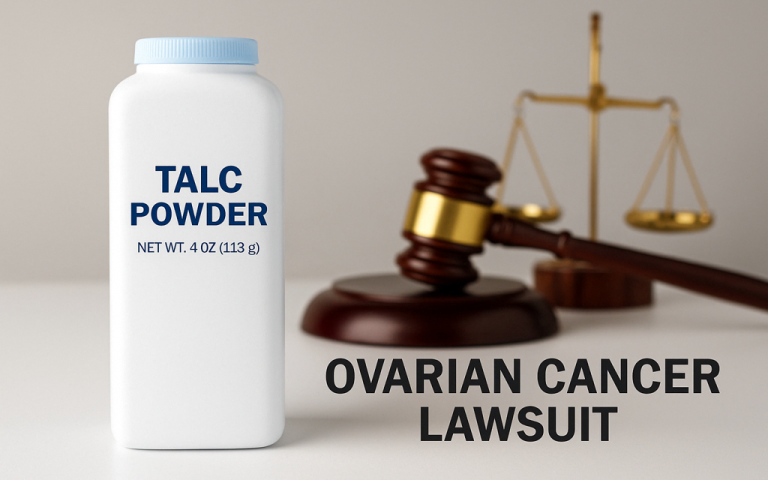The Health Matching Account (HMA) Class Action Lawsuit is gaining national momentum as thousands of consumers claim they were misled by a company promising unmatched medical savings. What was marketed as a groundbreaking solution to healthcare costs has left many feeling deceived, disempowered, and financially stranded. The result? A full-scale legal battle with wide-reaching implications for health finance services in America.
In a healthcare environment where out-of-pocket expenses continue to climb, the appeal of a program that doubles your healthcare dollars seemed like a dream come true. Customers were told they could access matched funds to pay for doctor visits, procedures, and prescriptions. But by late 2023, that dream began to unravel. Health Matching Account Services, Inc. (HMAS), the Houston-based company behind the HMA program, altered access to funds, eliminated debit cards, and introduced new barriers to reimbursement—leaving customers without the means to cover urgent medical costs.
For many, the financial and emotional impact has been devastating. Now, a class-action lawsuit filed in federal court aims to hold the company accountable.
What Is the Health Matching Account (HMA)?
The Health Matching Account is a medical savings product developed by HMAS. Designed to support individuals and families with high-deductible health plans or gaps in insurance coverage, the HMA promised a significant return on contributions. For each dollar deposited, HMAS claimed customers would eventually receive up to $2 or more in matched funds.
Customers were initially provided debit cards that could be used for eligible medical expenses. This functionality made the program appear simple and accessible. However, in late 2023, HMAS eliminated the debit card system and replaced it with a reimbursement model. Now, customers must pay out of pocket, submit claims, and wait for approval—often facing delays, denials, or silence.
The Lawsuit: Key Allegations Against HMAS
The federal class-action lawsuit filed in the Southern District of Texas outlines a series of serious allegations:
Misrepresentation and False Advertising
Plaintiffs argue that HMAS misled consumers by promoting easy access to matched funds. Marketing materials repeatedly emphasized that the program would function like a seamless payment tool for medical expenses. In practice, however, access to funds has been limited, unpredictable, and, in some cases, entirely blocked.
Customers were told they would never lose their contributions. However, buried in the contract is a clause stating that missing a single monthly payment results in account termination and forfeiture of funds. This condition was not clearly disclosed upfront, leaving many blindsided.
Breach of Contract and Unilateral Changes
Another major allegation is breach of contract. The elimination of the debit card feature is seen by many as a fundamental change to the nature of the agreement between HMAS and its clients. Plaintiffs argue that the company made unilateral modifications to the terms and failed to provide adequate notice or consent mechanisms.
The new reimbursement policy, which forces customers to front the cost of care and wait for approval, has introduced financial strain and reduced trust. Some claim that despite having large balances in their HMA accounts, they were denied reimbursements without clear justification.
Unfair and Deceptive Business Practices
The lawsuit also cites HMAS’s practices as deceptive under state consumer protection laws. Key concerns include:
- Failure to provide timely responses to reimbursement claims
- Vague eligibility requirements that shift without notice
- Withholding refunds or returns of contributions upon account cancellation
- Using complex legal terms to obscure consumer rights
Dozens of complaints filed with the Better Business Bureau (BBB) and state attorney generals back these claims. HMAS currently holds an “F” rating with the BBB due to unresolved disputes and lack of transparency.
Customer Voices: Real Stories, Real Impact
Many clients describe a pattern of frustration, financial loss, and confusion:
- A retired veteran contributed over $10,000 to the HMA but was denied reimbursements for multiple claims, despite submitting full documentation.
- A single mother relied on her HMA for her child’s surgery, only to find her account frozen due to a minor payment delay.
- A cancer patient with over $7,000 in the account was told she had to reapply for reimbursement after the company shifted its claim portal—and never received the funds.
These stories are not isolated. They reflect a larger trend that the lawsuit seeks to address.
HMAS’s Response to the Lawsuit
In a public statement, Health Matching Account Services, Inc. denied the allegations. The company asserts it has always complied with its contractual terms and believes the lawsuit is without merit.
“Because that lawsuit is pending, we cannot comment on the specific allegations of the litigation or any associated complaints. However, we categorically deny the allegations and will vigorously defend against these claims in court. We remain committed to our vision to be the leader in health care affordability.”
What Happens Next?
The class-action lawsuit could involve tens of thousands of affected consumers across the United States. Legal experts predict that if the plaintiffs succeed, HMAS may be ordered to provide refunds, pay damages, and amend its practices. Regulatory oversight may also tighten for health-related savings programs.
If you believe you’ve been affected:
- Gather your records, payment history, and any email correspondence.
- File a formal complaint with your state attorney general.
- Consider speaking to an attorney specializing in class-action or consumer rights litigation.
Final Thoughts: A Call for Consumer Accountability in Healthcare Finance
The Health Matching Account Class Action Lawsuit is more than a legal battle. It’s a reflection of a deeper issue in U.S. healthcare financing—one where innovation must be paired with transparency and fairness.
In a time when families are desperate for ways to manage medical costs, programs like the HMA must be held to the highest ethical standards. This lawsuit serves as a wake-up call. Consumers deserve clear terms, consistent access to their money, and protection from exploitative clauses.
The path to justice may be long, but for the victims of HMA’s alleged misconduct, this is a crucial step toward restoring trust, fairness, and accountability.
FAQs About the Health Matching Account Lawsuit
What is the Health Matching Account (HMA)?
The HMA is a medical savings plan created by Health Matching Account Services, Inc. It was designed to help people stretch their healthcare dollars by matching their monthly contributions. The concept sounded like a win-win—put in money now, get more later. But many say the reality didn’t match the promise.
Why are people suing HMAS?
Thousands of customers believe they were misled. They say they were promised easy access to funds and dependable support for medical expenses. Instead, many found it hard to get reimbursements, had their accounts canceled over minor issues, or lost access to their contributions without warning. The lawsuit claims this amounts to misrepresentation, breach of contract, and deceptive practices.
How do I know if I qualify to join the lawsuit?
If you contributed to an HMA plan and faced reimbursement denials, sudden policy changes, account cancellations, or lost funds—you may qualify. Reach out to a class-action attorney or legal clinic offering free consultations. They’ll help determine your eligibility.
Will I get my money back?
There’s no guarantee, but if the class-action suit is successful, you could be entitled to compensation. That might mean a full or partial refund of what you contributed, or additional damages depending on your situation. Every case is different, so legal guidance is important.
Is HMAS still accepting new clients?
Surprisingly, yes. As of April 2025, the company is still active and promoting its products. But consumer advocates are urging people to research thoroughly and approach with caution given the ongoing lawsuit and unresolved complaints.
What can I do right now if I’ve been affected?
Start by collecting all relevant paperwork—emails, account statements, claim submissions, and correspondence. File a complaint with the Better Business Bureau or your state’s attorney general office. And most importantly, speak to a lawyer who specializes in consumer protection. You don’t have to face this alone.
Where can I stay updated on the case?
Follow official updates from the U.S. District Court for the Southern District of Texas. You can also sign up for alerts from legal news sites and class-action registries that will notify you of important case developments and settlement opportunities.
Is this the first lawsuit against a health savings program?
It’s one of the most prominent, but it’s not the first. As the healthcare finance sector grows, oversight is becoming a bigger issue. This case may set a new precedent for transparency and consumer rights in medical savings programs.
Can I still use the money in my HMA account?
That depends on your account status. Some users report continued denial of reimbursements even with active accounts. If you’re unsure, contact HMAS in writing and track every interaction. Legal professionals recommend not closing your account until you’ve consulted with counsel.
What if I’ve already closed my HMA account?
You may still qualify to participate in the lawsuit. If you experienced losses before closing the account, your case could still be valid. Don’t assume you’ve missed your chance—talk to a class-action lawyer to find out where you stand.
Ayesha Awais is a content writer for JudicialNexus.com, covering accident reports, injury-related news, lawsuits, and public safety updates. All content is informational in nature and based on publicly available sources.




